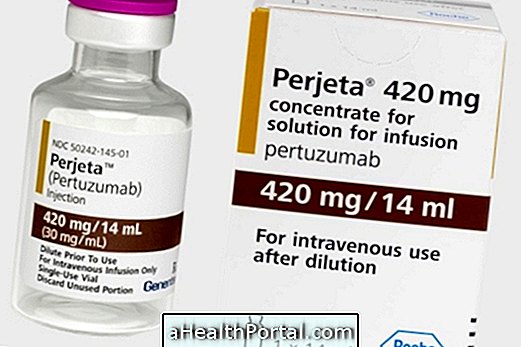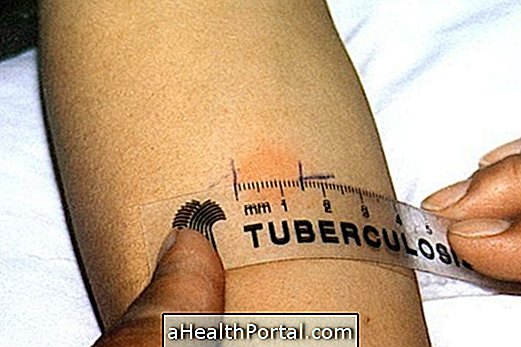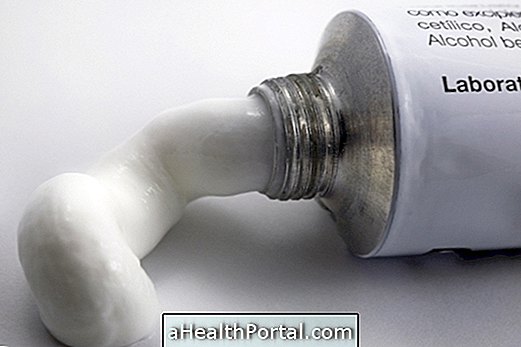The treatment for hepatitis depends on the type of hepatitis the person has, as well as the signs, symptoms and progression of the disease, which can be done with medicines, change in lifestyle or in more serious chaos, it may be necessary to perform a transplant of liver.
Hepatitis consists of an inflammation of the liver, which can be caused by viruses, medications or due to an exacerbated reaction of the immune system. Learn all about hepatitis.

1. Hepatitis A
There is no specific treatment for hepatitis A. Generally, the body will eliminate the hepatitis virus alone without the need for medication.
Thus, it is very important to rest as much time as possible, because this disease leaves the person more tired and with less energy, to control the nausea characteristic of this type of infection, eating more meals, but with less quantity in each one and drinking a lot water to prevent dehydration that can occur during periods of vomiting.
In addition, alcohol and medicines should be avoided as much as possible, because these substances overload the liver and make it difficult to cure the disease.
2. Hepatitis B
Treatment for hepatitis B depends on the stage of the disease:
Prevention treatment after exposure to virus
If a person is aware that he or she has been exposed to the hepatitis B virus and is not sure if it has been vaccinated, he or she should consult a doctor as soon as possible to prescribe an immunoglobulin injection, which should be administered within a period of 12 hours after exposure to the virus, which may help prevent the development of the disease.
In addition, if the person has not yet received the hepatitis B vaccine, he should do so simultaneously with the injection of antibodies.
Treatment for acute hepatitis B
If the doctor diagnoses acute hepatitis B, it means that it is of short duration and heals on its own and therefore no treatment may be necessary. However, in severe cases, the doctor may advise treatment with antiviral drugs or there may be cases where hospital admission is recommended.
Also, it is important for the person to rest, feed properly and drink plenty of fluids.
Treatment for chronic hepatitis B
Most people diagnosed with chronic hepatitis B need to undergo lifelong treatment, which will help reduce the risk of liver disease and prevent the spread of the disease to others.
Treatment includes antiviral drugs such as entecavir, tenofovir, lamivudine, adefovir and telbivudine, which help fight the virus and decrease its ability to damage the liver, interferon alfa 2A injections, which help fight infection and in more cases severe liver transplantation may be necessary.
Learn more about human interferon alfa 2A.
3. Hepatitis C
Hepatitis C can also be treated with antiviral medicines, such as ribavirin associated with human interferon alpha 2A, in order to completely eliminate the virus for up to 12 weeks after completion of treatment. See more on ribavirin.
More recent treatments include antivirals like simeprevir, sofosbuvir or daclatasvir, which may be associated with other medications.
If a person develops serious complications from chronic hepatitis C, liver transplantation may be necessary. Even so, the transplant does not cure hepatitis C because the infection may return and so treatment with antiviral drugs must be done to avoid damage to the new liver.
4. Autoimmune hepatitis
To avoid liver damage or decrease the activity of the immune system on it, medications that reduce its activity should be used. Generally, a treatment with prednisone is performed and then may be associated with azathioprine.
When the medicines are not enough to prevent the disease from developing, or when the person suffers from cirrhosis or liver failure, liver transplantation may be necessary.
5. Alcoholic hepatitis
If you suffer from alcoholic hepatitis, you should immediately stop drinking alcohol and never drink again. In addition, the doctor can advise a diet adapted to correct nutritional problems that may be caused by the disease.
The doctor may also recommend remedies that reduce inflammation of the liver such as corticosteroids and pentoxifylline. In more severe cases, liver transplantation may be necessary.




















